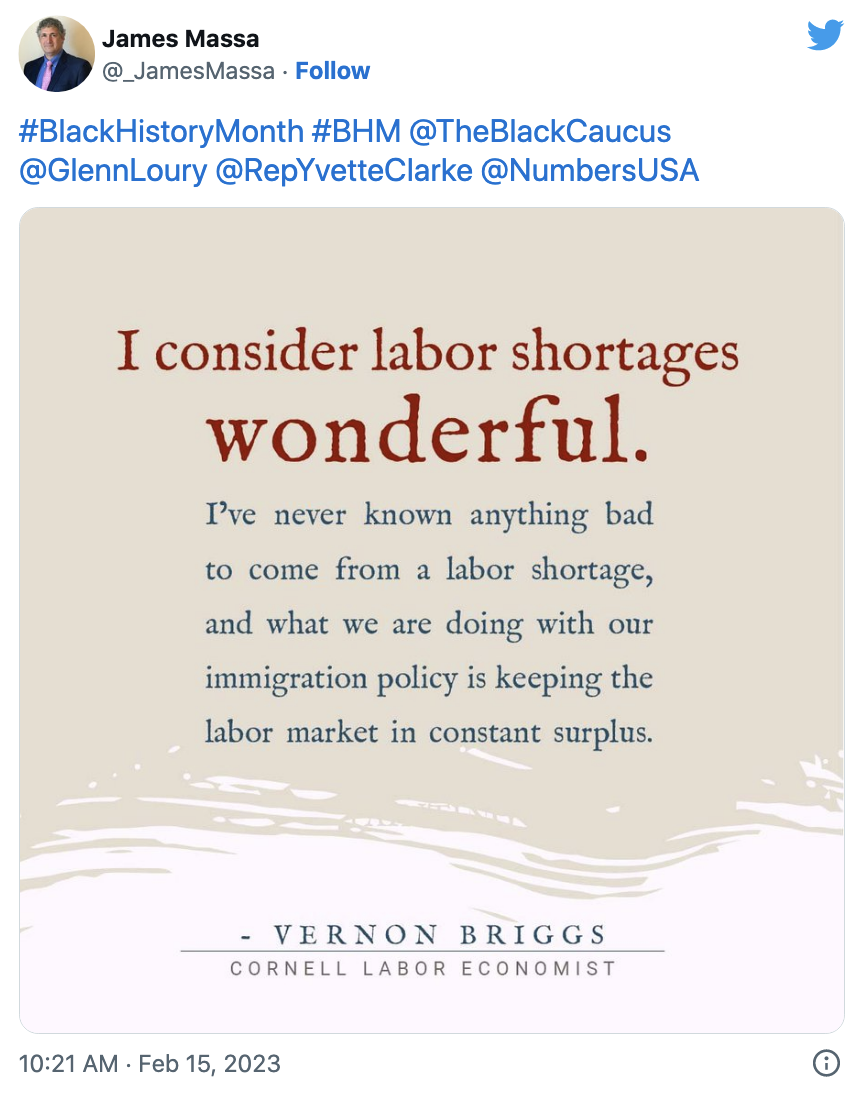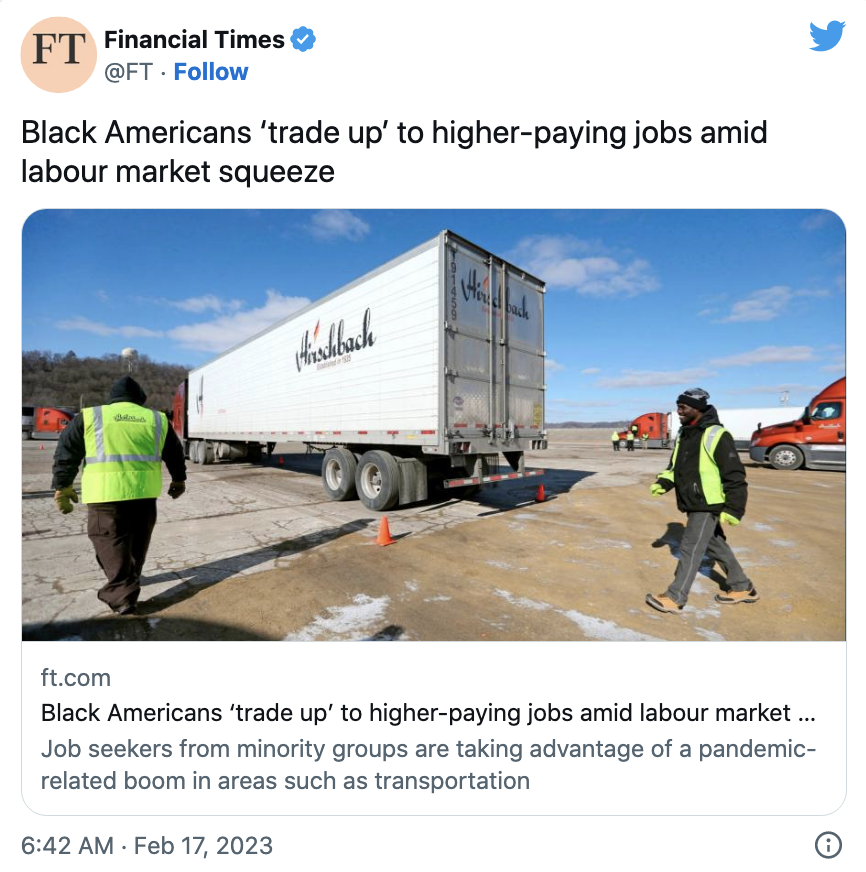Amid border happenings, sanctuary policies outrages, and declarations that New York City is “full” of migrants, the underlying truth about the immigration battle is that it is fundamentally between those with an insatiable appetite for more foreign workers, and those who embrace the social good of tight labor markets. The economic question has the deepest roots of any facet of the issue.

If you scroll through enough news, you’ll find plenty of stories about how something good is happening due to tighter labor markets.

Home Depot isn’t just raising their wages and investing their employees, they’re also saying that it will improve their business:
Home Depot CEO Ted Decker said the [$1 billion] investment [in their hourly workers] ‘positions us more favorably in every market where we operate.’ He said higher wages will improve the customer experience as the company attracts more high-quality workers and keep experienced staff members.
These are the stories and quotes we should remember and use to push back against what Eric Weinstein calls the “Gated Institutional Narrative.”
Speaking of which, the tight labor market-opposing advocates for mass immigration are busy demanding more foreign workers and crafting reports for the use of D.C. decision-makers with lists like “21 steps the executive branch could take to improve the functioning of the legal immigration system for employers, immigrant workers, and the U.S. economy overall.”
Who do you notice is missing from that agenda?
In an astounding report by Adam Shaw at Fox News, the Biden administration intends to implement would convert more of our “temporary” guestworker visas into larger, more permanent schemes:
The rule change would be in line with the Biden administration’s pledge to open up more legal immigration pathways to those seeking to come to the U.S., both via the southern border and elsewhere.
I’ve never heard anything like this suggested in the two decades I’ve been working on immigration issues. U.S. workers would be much better off completely ending the anti-modernity H-2A program, which offers unlimited visas to work in agriculture, and the diabolical H-2B program, which offers visas for other seasonal work (e.g. ski resorts).
The Los Angeles Times‘ columnist Jean Guerrero, who seemingly has an allergy to Congressionally-enacted immigration limits, complains like a Chamber of Commerce spokesperson about the “dire worker shortage”:

Aside from the fact that many (indeed, a sizeable majority of Americans have wanted less immigration for some time, it’s clear that what “doesn’t matter” to Jean is that we’re missing 6.4 million American workers who would be in jobs right now if we had maintained the labor force participation level we had in the year 2000:

Why doesn’t Jean have a proposal that requires businesses to find and recover these folks? It’s because she’s determined to discard the people in that workforce gap and make sure employers don’t have to compete to bring them off the sidelines and back into the labor force. She’s not alone, either in the media or among D.C. institutions.
As our elected officials make policy decisions – big and small – it’s worth remembering that they all feed into a bigger choice about the American future.
|
ANDREW GOOD is the Director of the Media Standards Program for NumbersUSA